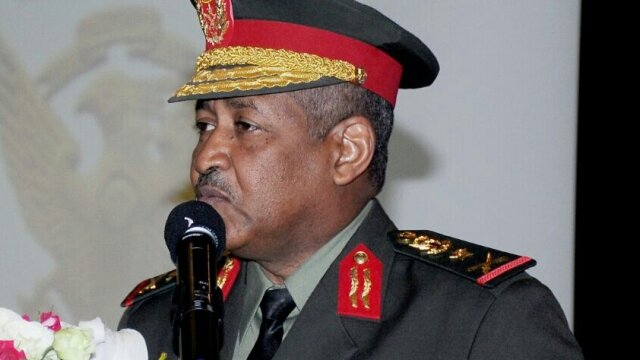Khartoum (Mona Mustafa) - Sudan called on United Nations and donors to increase support for refugees, pointing out that the Sudan hosts
more than 3 million of refugees from the South Sudan , Eritrea, Ethiopia, Chad, Syria and Yemen, stressing that the support provided is poor and does not meet the needs of refugees in the camps.
Vice President of the Republic, Hassabo Mohamed Abdul Rahman said that the United Nations is dealing with Sudan with double standards in its assistance to refugees in Sudan, revealing that 70% of donor support paid to workers in the form of aircraft, buildings and salaries of workers, stressing that Sudan is suffering from an increase in the influx of refugees from the State of South Sudan, describing that as serious, appealing to the international community and organizations to increase support, warning refugees from the South to engage in political action and to respect the rule of state law, calling on South Sudan State the need of dialogue, as it is the only means to achieve peace.
Addressing the symposium of the Sudanese Society of the United Nations entitled "Refugees in Sudan between national and international responsibility", in partnership with the Ministry of Foreign Affairs, Refugee Commission and the UN High Commissioner for Refugees, Hassabo called for a change in aid policy, directing UNHCR and Refugees Commission and the states for the need to control and review financial policies to meet the needs of the refugees.
For his part, Refugees Commissioner, Dr. Hamad Al-Jazouli said that Sudan is one of the largest countries to receive refugees and the number of refugees is more than 3 million and that Sudan deals with refugees according to the policy of the open door relative to geographical location and social reality and works to protect them, indicating that Sudan worked on durable solutions, where it signed a tripartite agreement with Chad and the United Nations for the voluntary return of Chadian refugees from Sudan and the return of Sudanese refugees from Chad after the stability of Darfur, as well as the agreement for the return of Sudanese refugees from Central African Republic and provided services and financial assistance and facilitate the shelter and housing for them, noting that the assistance covers only 31% of the needs, calling on the international community to increase assistance so that Sudan can help refugees..
Head of the Sudanese Association of the UN, Prof. Abdullah Ahmed Abdullah said that the symposium aims at shedding light on the size and numbers of refugees and returnees, adding that the influx of refugees from South Sudan constitutes a serious crisis that exceeds the potential of Sudan, revealing that the Sudan’s support of the United Nations and donors to meet its obligations to refugees and returnees does not exceed 20% of the required support.
State Minister at the Ministry of Foreign Affairs, Ambassador Ahmed Shawur said the Sudan remained hosting the refugees since 1950 (Congo revolution and Ethiopian refugees), adding that the government issued an act on that issue, lauding the role of the NGos for providing initiatives to contribute in resolving the refugees complicated issues.
For his part, of the President of the Sudanese association of refugees, Prof. Abdalla Ahmed Abdalla spoke on the efforts of the association in cooperation with the international community to provide education, health and water services to the refugees, adding that the flow of refugees from South Sudan represents a real threat , lauding the efforts of Qatar in constructing model villages for the returnees in Darfur amounting to US$88 million.
Refugees Commissioner, Hamad Al-Jizouli said that the international community response to the refugees’ issues is less that 31% of the requirements, adding that Sudan is shouldering the rest of the expenses.
White Nile State Representative, Abdul Qawi Ahmed stressed on the necessity of providing all the health services to protect the refugees from the outbreak of fatal diseases such as AIDS.
The forum ended up by issuing recommendations including the services provided by the UNHCR, besides the support of the international community to Sudan to enable it continue its role in providing the services without affecting the Sudanese economy.
-
U.S. Raises Pressure on S. Sudan, Bans Export of Arms, Defense ServicesNext >

